You are here
-

- Publisher: Pentagon Press
2014
There is little doubt that Asia – stretching from the Eurasian landmass to the maritime reaches of Australia and the South Pacific – is experiencing a major shift in the global balance of power. Expressions like the ‘Indo-Pacific’ and ‘Asia-Pacific’, contested they maybe, capture Asia’s expanse and dynamism. A power shift from the West to the East is well under way.
- ISBN 978-81-8274-823-1,
- Price: ₹. 1095/-
- Publisher: Pentagon Press
-

- Publisher: Pentagon Press
2014
India’s role as a security provider has increasingly been discussed and debated over a period of time. This has received a fillip as a result of India's growing capabilities, both economic and military. The 2015 edition of the Asian Strategic Review, is possibly the first book which analyses this facet in the Asian context. The book assesses India's capabilities as well as existing limitations. It contextualizes India's role in relation to important regions. Multinational fora and specific countries in Asia. The publication aims to provide greater clarity on the past, present and future contours of India's role as a security provider, in light of evolving strategic contours and its security implications.
- ISBN 978-81-8274-825-5,
- Price: ₹. 995/-
- Publisher: Pentagon Press
-

- Publisher: Magnum Books Pvt Ltd
2014
An annual publication from the Institute for Defence Studies and Analyses (IDSA), the China Yearbook is a round-up of events and issues of significance that occurred in China during the past year and covers important developments in the domestic and foreign policy spheres.
- ISBN 978-93-82512-24-0,
- Price: ₹. 795/-
- Publisher: Magnum Books Pvt Ltd
-
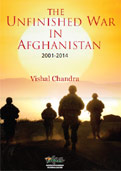
- Publisher: Pentagon Press
2014
This book makes a modest attempt to contribute to the ongoing debate on future challenges for Afghanistan as the largest ever coalition of Western forces prepares to withdraw. It seeks to examine key political developments within Afghanistan over the last one decade in response to the US-led Western military and political intervention.
- ISBN 978-81-8274-762-3,
- Price: ₹. 1495/-
- Publisher: Pentagon Press
-
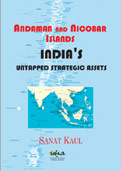
- Publisher: Pentagon Press
2014
The author argues that though the islands are an environmentally sensitive region, its strategic importance in the present day context for India cannot be diminished. The book offers suggestions about ways in which India can leverage the geographical location of the islands, especially the Great Nicobar Island at the western entrance of the Straits of Malacca, to tap the potential of the islands to meet India's commercial and security challenges without www sacrificing the environmental concerns
- ISBN 978-81-8274-774-6,
- Price: ₹. 995/-
- Publisher: Pentagon Press
-
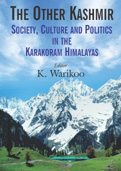
- Publisher: Pentagon Press
2014
The book deals with the historical, cultural, geopolitical, strategic, socio-economic and political perspectives on the entire Karakoram-Himalayan region. It is based on the papers contributed by area specialists and experts from the region.
- ISBN 978-81-8274-797-5,
- Price: ₹. 1495/-
- Publisher: Pentagon Press
-
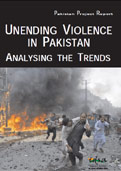
- Publisher: Institute for Defence Studies and Analyses
2014
The Pakistan Project of IDSA consists of a dedicated group of scholars studying Pakistan and watching the unfolding events and analysing the trends from the perspective of its implications for India and the region. “Unending Violence in Pakistan: Analysing the Trends, 2013-14” is the third report published by Pakistan Project.
- Publisher: Institute for Defence Studies and Analyses
-
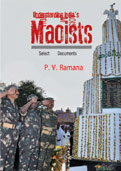
- Publisher: Pentagon Press
2014
The proscribed Communist Party of India (Maoist), Maoists in short, also known in India as Naxalites, is the most lethal and largest of all such groups. Its ultimate aim is to capture/seize political/state power through protracted people’s war (PPW), on the lines propounded by Mao Tse Tung.
- ISBN 978-81-8274-801-9,
- Price: ₹. 1295/-
- Publisher: Pentagon Press
-

- Publisher: Pentagon Press
2014
The ten years of Maoist insurgency followed by the political vacuum after the abolition of the monarchy and the delay in the drafting of the Constitution has given credence to the role of external powers in shaping the domestic politics in that country. The book examines the nature of external powers’ role during the political transition in Nepal since 2006. It analyses Nepal’s relations with external powers’ in the framework of ‘small and major powers’.
- ISBN 978-81-8274-761-6,
- Price: ₹. 995
- Publisher: Pentagon Press
-

- Publisher: Pentagon Press
2014
There are a few minerals which are categorized as ‘strategic’ because of their importance for the industries and owing to natural and man-made difficulties in their procurement. There has been an attempt here to contextualize the importance of strategic materials from a national security perspective. This study presents a macro view with regard to India’s strategic minerals architecture and undertakes analysis to understand current and futuristic challenges and opportunities in this sector, and offers a few recommendations based on the assessment undertaken. Issues related to Rare Earth and new materials are also discussed.
- ISBN 978-81-8274-786-9,
- Price: ₹. 795/-
- Publisher: Pentagon Press
